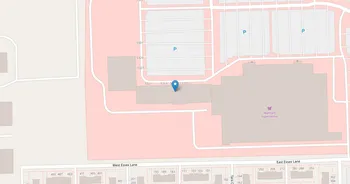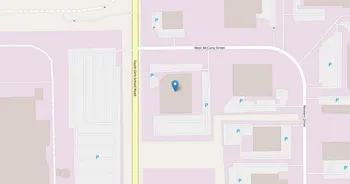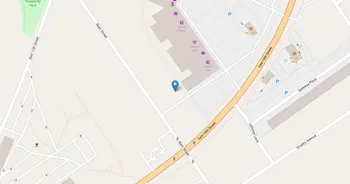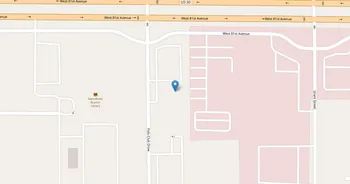Trine University, Regional/Non-Traditional Campuses : Overview, Courses, Scholarships & Rankings
About Trine University
Tucked among northeast Indiana lakes, Trine's regional campus in Angola serves students balancing work, family, and school. It's known for hands-on, career centered study across technical, business, and health related areas. Expect small classes, practical labs, and clear support from advising, tutoring, and career staff. The vibe is welcoming and no-nonsense.
Student life fits real schedules, with professional meetups, service projects, and study groups, and nearby lakes and trails for quick escapes. Career prep shows up in resume help, interview practice, and ties to regional employers. The community offers internships and part time roles in manufacturing, healthcare, and public service. Distinguishing traits include flexible formats, often hybrid or evening, and team projects tied to local needs. And while it's commuter friendly, people stick around because the connections feel useful and real.
Key Institutional Details
Contact & Profile
Academic & Institutional
Academic Programs & Fields of Study
Trine University, Regional/Non-Traditional Campuses offers 16 degree programs across 8 major academic fields, graduating approximately 2,741 students annually. The most popular fields by graduate volume are Computer & IT (1 programs, 1,381 graduates), Interdisciplinary (1 programs, 737 graduates), Eng. Technologies (3 programs, 351 graduates), Business (7 programs, 244 graduates) and Security & Safety (1 programs, 13 graduates). Explore program details, award levels, and graduate demographics below.
Computer & IT (1 programs, 1,381 graduates)
Computer Science, Information Technology and Cybersecurity
| Program Name | Graduates | Gender Distribution | Award Levels | CIP Code |
|---|---|---|---|---|
| Information Science | 1,381 |
|
Bachelor's
Master's
|
11.0401 |
Interdisciplinary (1 programs, 737 graduates)
Cross-Disciplinary Studies and Integrated Research Programs
| Program Name | Graduates | Gender Distribution | Award Levels | CIP Code |
|---|---|---|---|---|
| Business Analytics | 737 |
|
Master's
|
30.7102 |
Eng. Technologies (3 programs, 351 graduates)
Applied Engineering Technologies and Technical Support
| Program Name | Graduates | Gender Distribution | Award Levels | CIP Code |
|---|---|---|---|---|
| Industrial Engineering Management | 339 |
|
Master's
|
15.1501 |
| Manufacturing Engineering Technology | 8 |
|
Associate's
Bachelor's
|
15.0613 |
| Industrial Technology | 4 |
|
Associate's
Bachelor's
|
15.0612 |
Business (7 programs, 244 graduates)
Business Administration, Marketing and Entrepreneurship
| Program Name | Graduates | Gender Distribution | Award Levels | CIP Code |
|---|---|---|---|---|
| Business Administration and Management | 154 |
|
Associate's
Bachelor's
Master's
|
52.0201 |
| Finance, General | 44 |
|
Bachelor's
|
52.0801 |
| Organizational Leadership | 23 |
|
Bachelor's
Master's
|
52.0213 |
| Accounting | 13 |
|
Associate's
Bachelor's
Other Award
|
52.0301 |
| Business Administration and Management | 4 |
|
Bachelor's
|
52.0299 |
| Human Resources Management | 4 |
|
Bachelor's
|
52.1001 |
| Marketing Management | 2 |
|
Bachelor's
Other Award
|
52.1401 |
Security & Safety (1 programs, 13 graduates)
Emergency Management, Law Enforcement and Public Safety
| Program Name | Graduates | Gender Distribution | Award Levels | CIP Code |
|---|---|---|---|---|
| Criminal Justice and Safety Studies | 13 |
|
Associate's
Bachelor's
Master's
|
43.0104 |
Liberal Arts (1 programs, 7 graduates)
Liberal Arts Education, General Studies and Humanities
| Program Name | Graduates | Gender Distribution | Award Levels | CIP Code |
|---|---|---|---|---|
| Liberal Arts and Humanities | 7 |
|
Associate's
Bachelor's
|
24.0199 |
Psychology (1 programs, 7 graduates)
Psychological Sciences, Mental Health and Behavioral Studies
| Program Name | Graduates | Gender Distribution | Award Levels | CIP Code |
|---|---|---|---|---|
| General Psychology | 7 |
|
Bachelor's
|
42.0101 |
Health (1 programs, 1 graduates)
Healthcare Professions, Medical Sciences and Clinical Practice
| Program Name | Graduates | Gender Distribution | Award Levels | CIP Code |
|---|---|---|---|---|
| Health Administration and Management | 1 |
|
Bachelor's
|
51.0701 |
Admission Requirements & Test Scores
Comprehensive overview of admission criteria, standardized test score ranges, and application requirements for prospective students at Trine University, Regional/Non-Traditional Campuses.
Application Requirements
Data based on IPEDS for 2022-2023 academic year. Test score ranges represent the middle 50% of admitted students (25th-75th percentile). Requirements may vary by program.
Tuition, Fees & Estimated Costs
Overview of tuition rates, housing, and other annual education expenses for undergraduate and graduate students
Financial Aid & Student Support
Summary of scholarships, grants, student loans, and financial aid statistics for undergraduate students
Student Success Metrics
Graduation rates and post-graduation earnings to help assess student outcomes and long-term value of education.
Loan Burden & Repayment Outcomes
Breakdown of loan repayment rates and student debt levels by income and dependency status.
Frequently Asked Questions
Find answers to the most common questions about Trine University, Regional/Non-Traditional Campuses
How much does it cost to attend Trine University, Regional/Non-Traditional Campuses?
The annual tuition at Trine University, Regional/Non-Traditional Campuses is $9,576 for in-state students. When including room and board, books, and other expenses, the total estimated cost is approximately $10,476 for in-state students. Additional costs include room and board $13,560 (off-campus) and books and supplies $900.
Data based on IPEDS program completions for 2022-2023 academic year. Tuition and cost estimates are approximate and may not include all fees, personal expenses, or transportation costs.
What academic programs and degree levels does Trine University, Regional/Non-Traditional Campuses offer?
Trine University, Regional/Non-Traditional Campuses offers 16 academic programs across 8 major fields of study, with available degree levels: Associate's, Bachelor's, Postbac Cert., Master's, Doctorate (Research).
Most popular program areas include:
- Computer Science, Information Technology and Cybersecurity (1 programs)
- Cross-Disciplinary Studies and Integrated Research Programs (1 programs)
- Applied Engineering Technologies and Technical Support (3 programs)
- Business Administration, Marketing and Entrepreneurship (7 programs)
- Emergency Management, Law Enforcement and Public Safety (1 programs)
Data based on IPEDS program completions for 2023-2024 academic year. Numbers reflect programs where students graduated, not all offered programs.
What is the acceptance rate for Trine University, Regional/Non-Traditional Campuses?
Trine University, Regional/Non-Traditional Campuses has an 21.6% acceptance rate and a 62.5% yield rate, making it highly selective.
Admission statistics breakdown:
- Total applicants: 74
- Students admitted: 16
- Students enrolled: 10
Data based on IPEDS for 2022-2023 academic year. Admission statistics may vary by program and application cycle.
What is the average salary for Trine University, Regional/Non-Traditional Campuses graduates?
Trine University, Regional/Non-Traditional Campuses graduates earn a median salary of $53,010 after 6 years and $57,165 after 10 years.
The salary range 10 years after graduation spans from $38,069 (25th percentile) to $82,880 (75th percentile).
Data based on IPEDS for 2022-2023 academic year. Salary data reflects graduates who received federal financial aid (approximately 60% of all graduates). Actual earnings may vary significantly based on program, location, and individual circumstances.
Related Universities




Found something useful? Help others discover it too! Share with friends, on social media, or save for later - every share helps someone find the information they need.